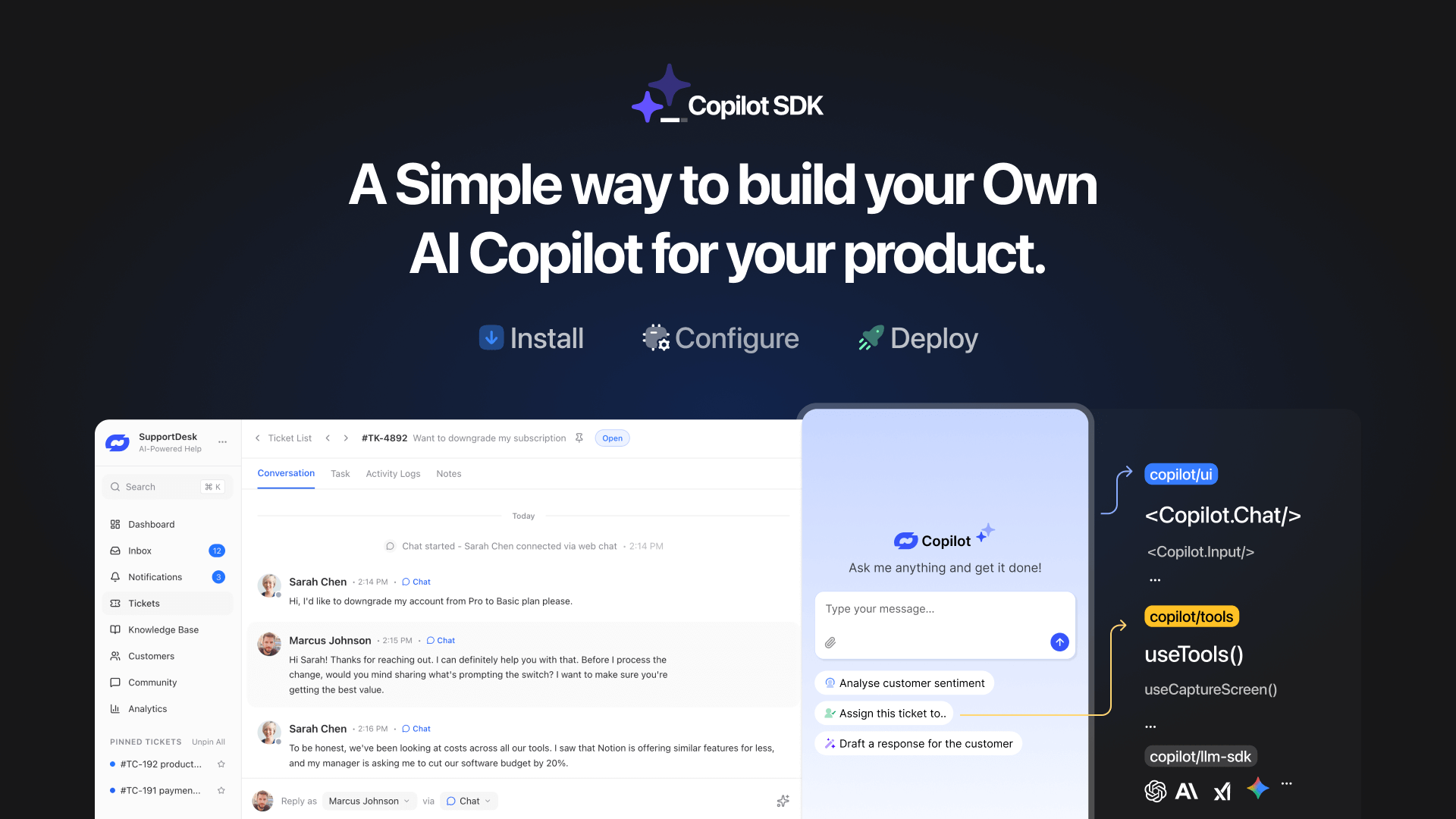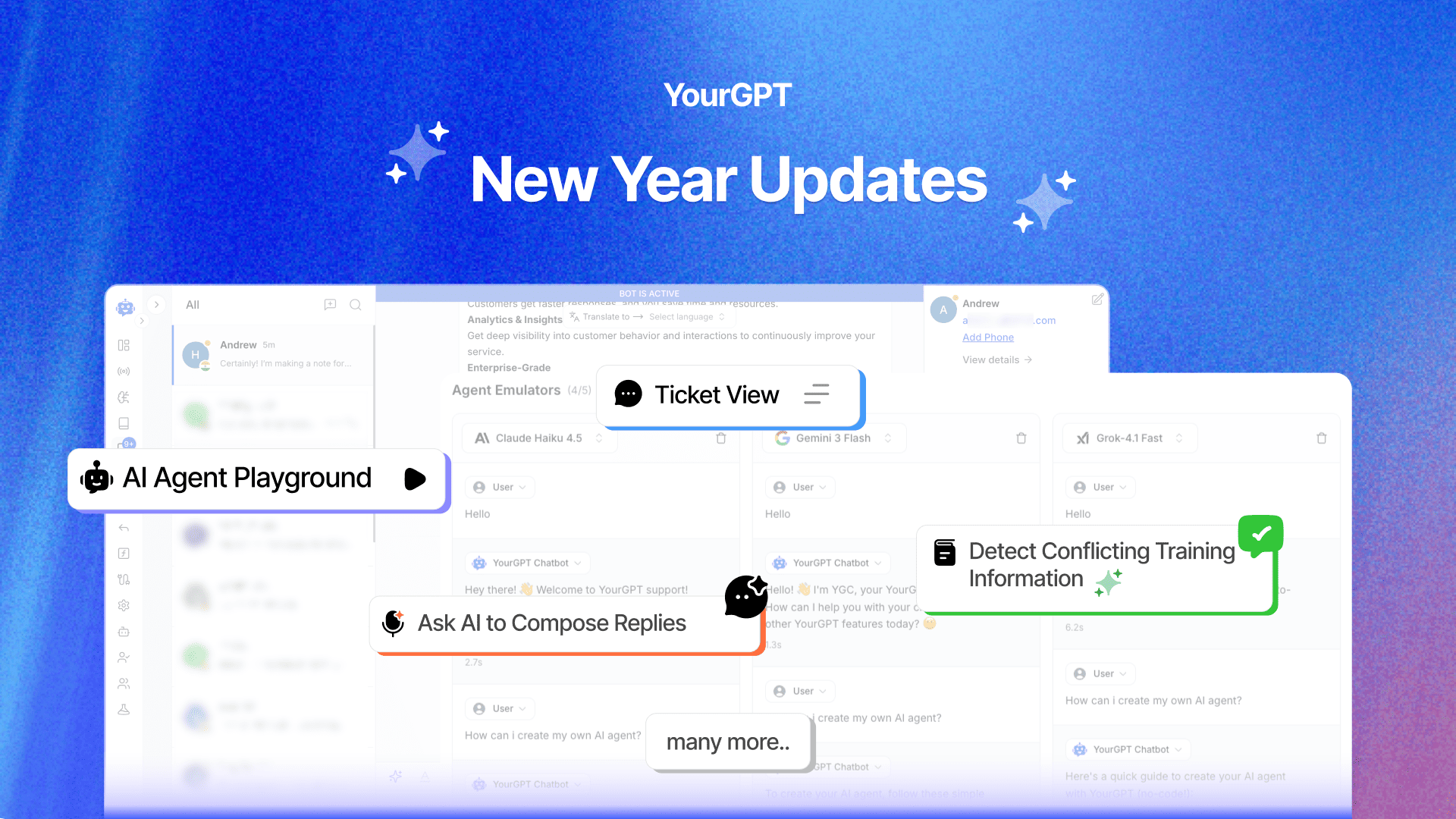How to Create a Custom Search GPT with Real-Time Web Search Capabilities



Want to create a custom Search GPT that offers real-time web search capabilities? You’re about to find out how.
Having up-to-date information can make a big difference for any business.
Think about a web search chatbot that not only understands your queries but also pulls the latest data from the internet. With YourGPT AI Chatbot, you can make your chatbot perform real-time web searches to provide relevant responses. Setting up such a tool is easier than you might think.
A custom Search GPT is an AI-powered chatbot that combines natural language processing with real-time web search capabilities. It allows users to ask questions or request information, and the GPT will search the internet to provide up-to-date and relevant answers.
While large language models (LLMs) and retrieval-augmented generation (RAG) chatbots are valuable, they often lack the ability to pull the most current information from the web. Adding ability to web search make RAG and LLM more effective, This is where a custom Search GPT can make a significant difference.
This technology offers real-time information retrieval from the web, contextual understanding of queries, the ability to synthesize information from multiple sources, and natural language responses that are easy to understand.
Building a custom Search GPT can help your business provide real-time information access to your customers enhancing customer engagement.
For industries like finance and media, having the latest data can be crucial. A custom Search GPT can fetch real-time updates on various topics like market trends, news, sports, and more, ensuring you always have the most relevant information.
Automating information retrieval allows your team to focus on strategic tasks. A Search GPT can quickly gather data, saving time and boosting productivity.
In e-commerce, providing instant answers to customer queries can significantly improve user experience. With a GPT-powered AI chatbot, you can effortlessly handle inquiries about product availability, shipping times, and more.
As your business grows, so do the demands for information. A custom Search GPT can easily scale to meet these needs without hiring additional staff.

Setting up a custom Search GPT with YourGPT is straightforward. Follow these steps:
1. Access Your Chatbot Platform
2. Go to the Functions
3. Enable Web Search from System Functions
4. Adjust Your Chatbot’s Restrictions
5. Test Your Search GPT

A custom Search GPT can be tailored to meet the needs of various industries:
Implementing a custom Search GPT comes with its own set of challenges:
By understanding these challenges, users can more effectively use the strengths of a Search GPT while being aware of its limitations.
Creating a custom Search GPT help businesses to provide real-time information access to its customers. This tool combines AI language processing with internet access, offering a dynamic solution for modern needs across various industries.
A custom Search GPT enhances team capabilities and improves customer engagement by providing quick retrieval and synthesis of up-to-date information. By following the steps outlined in this article, you can add real time web search capabilities to your chatbot.
Provide real-time information access and boost your efficiency. Join thousands of businesses already using AI Chatbot.
Start Your Free TrialNo credit card required. 14-day free trial.
Want to see it in action first?
Schedule a Demo
TL;DR YourGPT Copilot SDK is an open-source SDK for building AI agents that understand application state and can take real actions inside your product. Instead of isolated chat widgets, these agents are connected to your product, understand what users are doing, and have full context. This allows teams to build AI that executes tasks directly […]


Happy New Year! We hope 2026 brings you closer to everything you’re working toward. Throughout 2025, you’ve seen the platform evolve. We shipped the AI Copilot Builder so your AI could execute actions on both frontend and backend, not just answer questions. We added AI assistance inside Studio to help you generate workflows without starting […]


Grok 4 is xAI’s most advanced large language model, representing a step change from Grok 3. With a 130K+ context window, built-in coding support, and multimodal capabilities, Grok 4 is designed for users who demand both reasoning and performance. If you’re wondering what Grok 4 offers, how it differs from previous versions, and how you […]


OpenAI officially launched GPT-5 on August 7, 2025 during a livestream event, marking one of the most significant AI releases since GPT-4. This unified system combines advanced reasoning capabilities with multimodal processing and introduces a companion family of open-weight models called GPT-OSS. If you are evaluating GPT-5 for your business, comparing it to GPT-4.1, or […]


In 2025, artificial intelligence is a core driver of business growth. Leading companies are using AI to power customer support, automate content, improving operations, and much more. But success with AI doesn’t come from picking the most popular model. It comes from selecting the option that best aligns your business goals and needs. Today, the […]


You’ve seen it on X, heard it on podcasts, maybe even scrolled past a LinkedIn post calling it the future—“Vibe Marketing.” Yes, the term is everywhere. But beneath the noise, there’s a real shift happening. Vibe Marketing is how today’s AI-native teams run fast, test more, and get results without relying on bloated processes or […]
